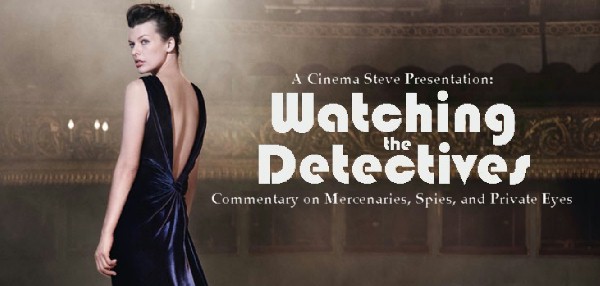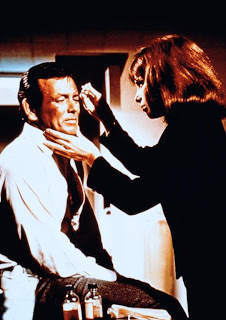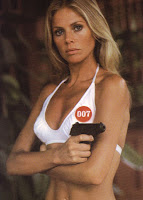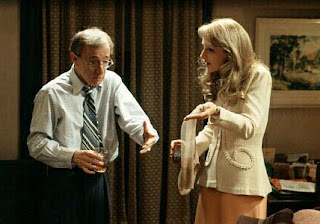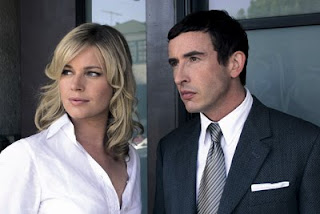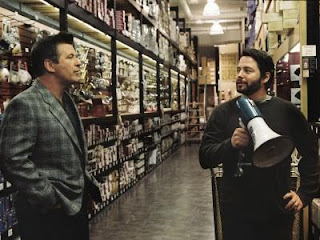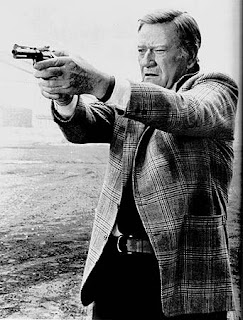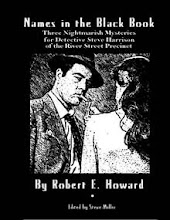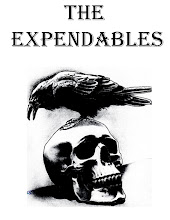Charlie's Death Wish (2005)Starring: Phoebe Dollar, Ron Jeremy Hyatt, John Fava, and Marc Knudson
Director: Jeff Leroy
Rating: Six of Ten Stars
After her sister is murdered in prison, young Charlie Durham (Dollar) goes on a killing spree to avenge her, violently dispatching anyone connected to her death. Meanwhile, the police detective assigned to stop and catch her (Hyatt) finds himself in the awkward postion of admiring her handiwork, because she is mostly dispatching people he hates.

"Charlie's Death Wish" is a tongue-in-cheek, low-budget action/comedy that moves along at a pace so brisk that the generally weak acting, poor dialogue, and unfocused script almost become non-issues. For a violent, gory low-budgeter, this is a surprisingly well-done film.
But, it's not exactly good. With the exception of Ron Jeremy Hyatt and John Fava (who play a pair of police detectives on the trail of our vigilante heroine, the acting here is pretty amateurish--and this even includes the star, Phoebe Dollar. Dollar isn't exactly bad, but she doesn't have the skill to carry off scenes where she has to show emotion, such as the one where she is confronted by an obnoxious documentarian (a character who is a cross between Michael Moore and a freak who was once a mainstay of public access TV here in northwestern Washington named Richard Lee, played by Marc Knudson). Dollar can strut about and look sexy or tough. She can also manage menacing. But she can't handle angry, or even sad. At least not yet.
Watching Dollar in this film, there are glimmers of what she could become, acting-wise, if she sticks with it, and I'm sure she does just fine in smaller roles. (Her performance almost feels as if she's a stage actor in front of the camera for the first time--something I know isn't the case
Another problem with the film is the scattered focus of the script. It tries to tackle too many things--being an action film with comedic elements AND attempting to make fun of conspiracy theorist filmmakers AND making fun of the gun-loving subculture in the United States AND making fun of dopeheads and druglords. All of these elements COULD perhaps have been tackled comfortably if the script had gone through a couple more drafts, but as it exists, they are presented in a loosely connected jumble. The antics of the documentarian are particularly annoying, because for most of the film they are unconnected detours from Charlie's murderous rampage.
I've been harping on the film's weak points, but I want to stress that this is actually not a bad little movie. It was clearly made by a crew that understand the limitations of making a movie on a very tight budget, and they understand how to get the most for their special effect dollars and how to use lighting and editing to stretch those even further. What's more, the filmmakers don't waste any time, nor do they pad out the film with overlong establishing shots and other filler material; everything on the screen is there for a reason.
I was also impressed with the model effects in the film. There are two model/blue-screen sequences of the kind that I didn't think were still being used, and I suspect at least 1/4 of the film's budget was consumed by them. First, there is a street scene and exploding building that is incredibly well-done (the flying body and the accompanying scream is guarenteed to make you laugh). Then there's the fiery destruction of the Hollywood sign, another very well-done model effect. These are both very fun moments in the film, and they're also excellently done from a technical standpoint.
"Charlie's Death Wish" may not be on the level of even Jean-Claude Van Damme's latest, but it's worth checking out. (If noting else, it's guarenteed to be funnier than Seagal's latest.)

